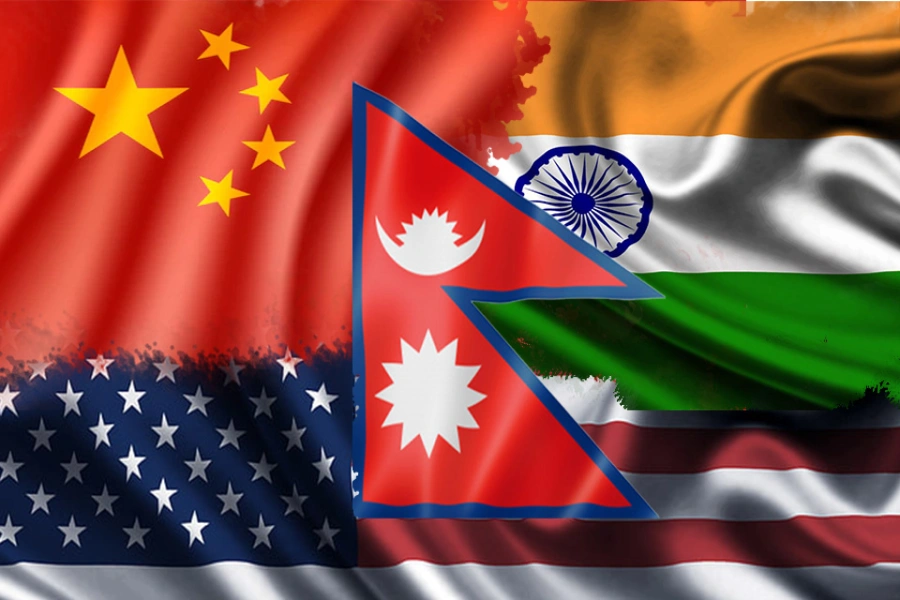KATHMANDU, July 30: Professor Dr Mahendra Lawoti has called for alliance among identical indigenous groups to form a broader identity to ensure their rights in the country.
Speaking at a program titled ‘Construction of Identity’ organized by Limbuwan Study Center (LSC), at Chumlung Him, of Kirant Yakthung Chumlung (KYC) in Shobhahiti, Lalitpur on Sunday, Professor Lawoti said, “A broader level of identity should be formed by uniting various identical ethnic groups to materialize the goal of Limbuwan movement.”
Lawoti further said that the fear subsisting among the non-Lumbu people that they will be suppressed and ostracized if Limbuwan formed is the major obstacle to the materialization of dream of Limbuwan.
Therefore, it is necessary to bring all the segments of the society on-board the Limbuwan movement to dispel the fear subsisting among the non-Limbu people, he said.
Lawoti stated that there could be multiple identities within a particular segment of the society and that, according to him, should not be viewed in a negative way. A broader identity could be formed by uniting identical entities within a particular segment of the society to achieve a common goal.
Human Rights Alliance concerned over children drowned in ditche...

Further elucidating the issue, Lawoti said Madhesi people emerged out to be a dominant political force in the provincial elections through the formation of a broader identity that is comprised of Muslims, Maithili, Bhojpuri and other many other castes and creeds.
Lawoti further said that fear subsisting among the non-Lumbu people that they will be suppressed and ostracized if Limbuwan formed is the major obstacle to the materialization of dream of Limbuwan.
According to Lawoti, identity can be constructed through the process of amalgamation and incorporation. In the process of amalgamation two or more groups unite to form a new, larger group while in the process of incorporation, one assumes the identity of the other.
He stressed that some certain identical characteristics are necessary while uniting two or more groups to form a new or larger group.
Similarly, Nanda Kandangwa, former chairman of KYC, who had been invited as a discussant of the discourse, stressed the rights of ethnic communities rather than names of the province. Speaking at the program, Kandangwa said, “The territorial, linguistic, cultural rights should be constitutionally ensured rather than bickering over the naming of the province,”.
However, he ruled out the possibility of formation of broader identity among those groups who do not have identical identities.
Kandangwa also made it clear that indigenous people have been waging battles just for the sake of ethnic identity which has nothing to do with the mainstream politics. Responding to the process of assimilation to form broader identity as postulated by Professor Lawoti, Kandangwa said that two or more groups with similar characteristics and beliefs could be incorporated into one but it undergoes a long process. However, it is not possible between two unidentical groups.
When asked about proposing ‘Kirant Province’ as the name for Province 1, Professor Lawoti hinted that Limbus could form alliance with Kirant people to this end even, though it would not yield a desired result, as they remain still in minority with only 21 percent in Province 1. However, according to him, if done so, it would exert pressure on the government to pay heed to the demands and gradually it will help toward forming some kind of identity.
Echoing the same, Kandangwa went on to say that even Kirant is an exo-name, let Limbuwan alone hinting that the name is not important. Kandangwa is of the opinion that rights are more important than the name.
Unlike the views expressed by Lawoti and Kandangwa, Associate Professor Balkrishna Mabuhang lashed out at Rai community for their claim on the region stretching from Dudhkosi to Mechi as Kirant territory, arguing that their claim does not base on historicity nor does it base on linguistic or cultural grounds.
Mabuhang ruled out the possibility of alliance with Rai community and taking proposal of Kirant as the name for Province 1, arguing that Rais and Limbus do not have shared identities.
Chaired by Associate Professor Arjun Limbu, over 60 personalities from various walks of life took part in the discourse.




































